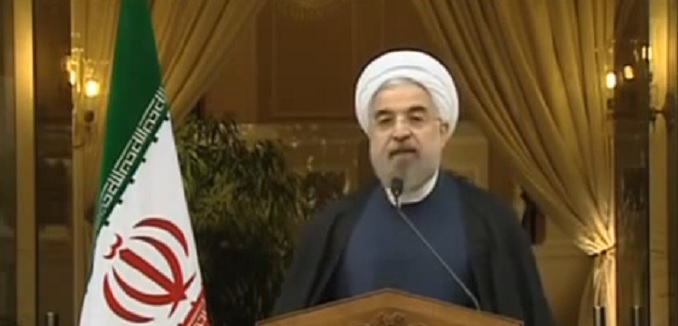Controversy continued to build Wednesday and Thursday over reported plans by the Obama administration to circumvent Congressional prerogatives and unilaterally lift sanctions on Iran, amid a converging consensus from pro-Israel and pro-Iran groups that such moves would be either untenable or counterproductive or both.
Mark Dubowitz, the executive director of the Foundation for Defense of Democracies (FDD), had already in February outlined how the White House was deploying a “battery of lawyers” to “unilaterally lift the sanctions without congressional approval.” A Congressional Quarterly article that quoted Dubowitz on the point also cited a Senate Republican aide predicting that Congress might need to move against what the aide described as an “outrageous power grab” by the administration to remove sanctions “by fiat.”
Bipartisan letters sent from both the House and the Senate in recent days have been read as reasserting Congressional prerogatives against any such gambit. Meanwhile David Rivkin and Lee Casey – Washington lawyers who served in the Justice Department under Republican administrations, with Rivkin also currently serving as a senior fellow at FDD – suggested in the Wall Street Journal that the White House should go so far as to “negotiate a formal treaty (involving the Senate from the start)” in pursuing its Iran diplomacy.
Unless there is a self-executing treaty that by definition becomes supreme law of the land (which is politically unlikely given sentiments in the Senate), Congress would have to pass new legislation to lift the U.S. sanctions regime, and new Security Council resolutions would be needed. If the administration cannot convince Congress to pass such legislation, Tehran could portray the U.S. as the agreement breaker, giving the mullahs an excuse not to comply.
Congress should pass “sense” of the Senate and House resolutions making clear that any Iranian agreement must be a treaty and must stipulate that Iran relinquish its nuclear breakout capabilities. Congress should also participate in the treaty negotiation, which in past arms-control negotiations has meant Senate observers. The Iranians can hardly object to such Senate involvement, since Tehran has included several parliamentarians in negotiations and indicated that Iranian lawmakers would have to ratify any agreement.
The pushbacks come alongside deepening worries that the administration lacks sufficient leverage to pressure Iran into making meaningful concessions on its nuclear program. Iranian Foreign Minister Mohammad Javad Zarif on Wednesday reiterated – after months in which he and other Iranian officials had made the stance a standard talking point – that Iran is “not going to close or dismantle anything,” describing the position as a “red line.”
The Islamic republic is obligated to fully suspend its nuclear program by half a dozen binding United Nations Security Council (UNSC) resolutions. A recent analysis from the U.S.-based Institute of Science and International Security (ISIS) assessed that [PDF] putting Iran’s nuclear program beyond use for weaponization would require Tehran to minimally have to remove 15,000 centrifuges, shut down its uranium-enriching underground military bunker at Fordow, downgrade the reactor at its plutonium-production facility at Arak, and agree to a 20-year inspection regime.
[Photo: World News 2014 / YouTube]




